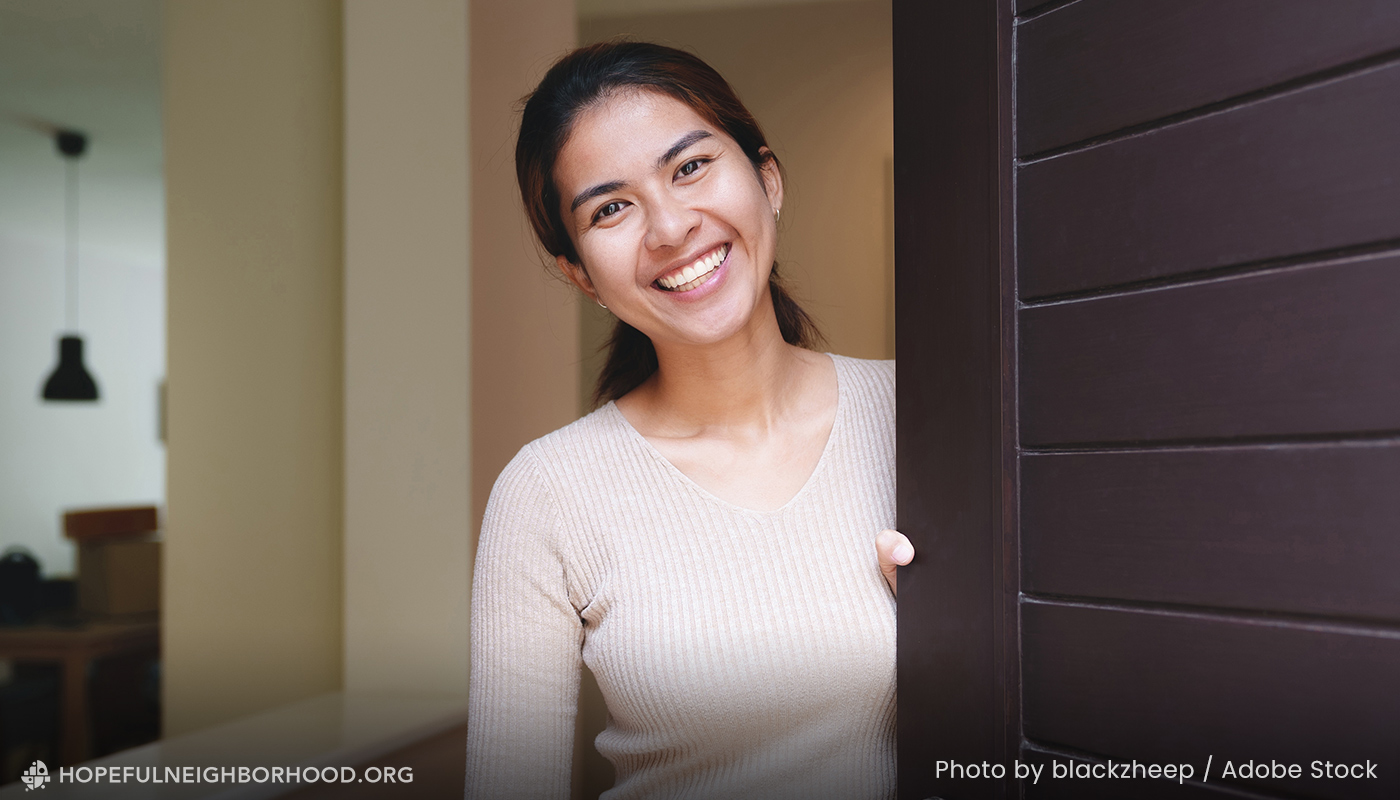When we uprooted our family of five from a home, neighborhood, and city that we loved, we were unsure about when, where, or how we would experience the kind of community we were leaving. We had purchased the house near parks, splash pads, and walking paths when our eldest was two years old and our youngest had not yet been born. When we sold it, the plan was to live in an apartment for one year while we searched for a new home in a new city that was much closer to our aging and ailing parents. As a result of a wild housing market, we stayed in our little three-bedroom apartment in the sky longer than we had expected. No more parks, splash pads, or walks with friends.
My spouse had narrowed down exactly where he wanted to live in our new city and, to my dismay, there was little I could do to convince him otherwise. We took countless trips to a storage unit, which held most of our belongings—Christmas decor, books, bikes, and off-season clothes. It made me sad, to say the least. More than the material possessions, I mourned over the memories of our home and neighborhood. I was unsure about if or how we would ever restore the rich community that we had left behind.
What about community, though? It did not seem as if many children lived in the area, and I wondered- who will our children play with? To my surprise and delight, the notes began.
Ten offers and two years in an apartment later, we finally found our new home. Green space for the kids, proximity to a body of water, and space to recover our belongings from storage. What about community, though? It did not seem as if many children lived in the area, and I wondered- who will our children play with? To my surprise and delight, the notes began.
“Welcome to the neighborhood! From your neighbors, Reggie, Keisha, and Baby Andrew.”
We wrote back, “Thanks so much. We look forward to meeting you. Signed, the Fulton Five.”
“We hope you liked the coloring books we left for your kiddos. From your neighbors, Reggie, Keisha, and Baby Andrew.”
I began to hope that we could experience community again. Though it would not be exactly the same as our last community, it could be just as rich. The possibilities of neighborhood lie within our preparedness to be curious about others and committed to something bigger than ourselves. These are big ideas that can be difficult and scary in our polarized society, but necessary for our collective well-being. Our Minneapolis community was racially, culturally, and socioeconomically diverse, but there was little age diversity. In our new Chicago home, my spouse plays chess on Fridays with our retired neighbor while our children play with the dog of empty-nesters and enamor the toddler across the street. Not only do the possibilities of neighborhood lie within our curiosity and commitment, but so does the best of the neighborhood itself.

Great article! I really appreciate the clear and detailed insights you’ve provided on this topic. It’s always refreshing to read content that breaks things down so well, making it easy for readers to grasp even complex ideas. I also found the practical tips you’ve shared to be very helpful. Looking forward to more informative posts like this! Keep up the good work! YouTube Downloader Online